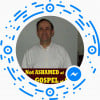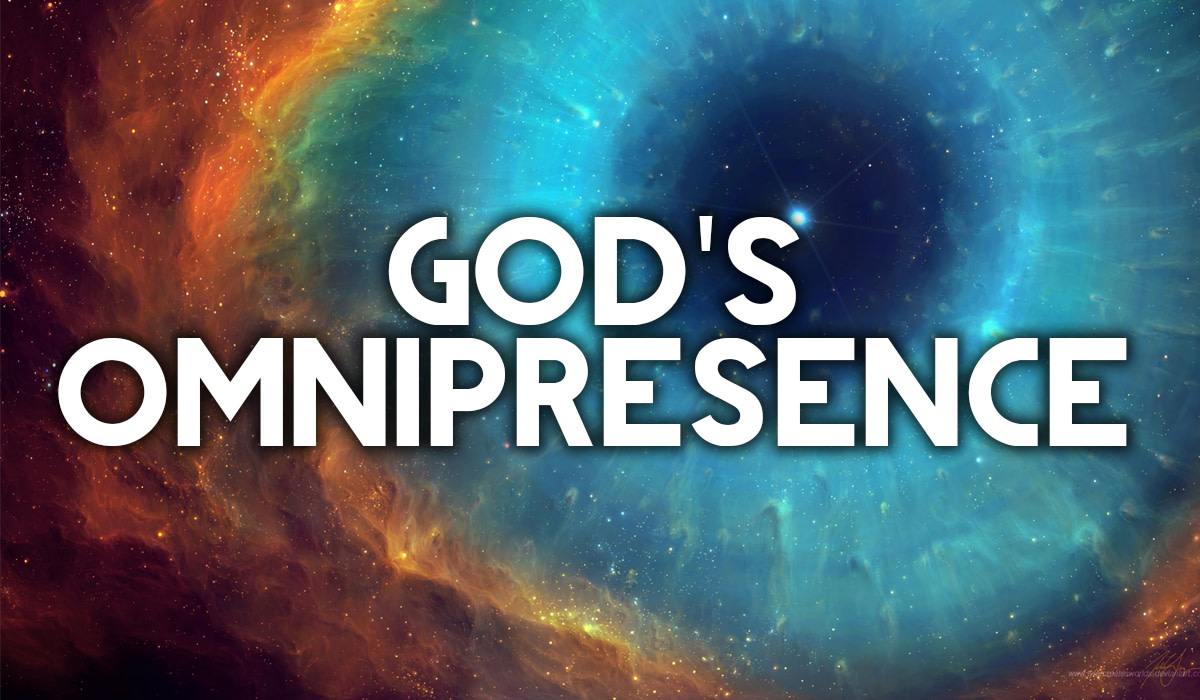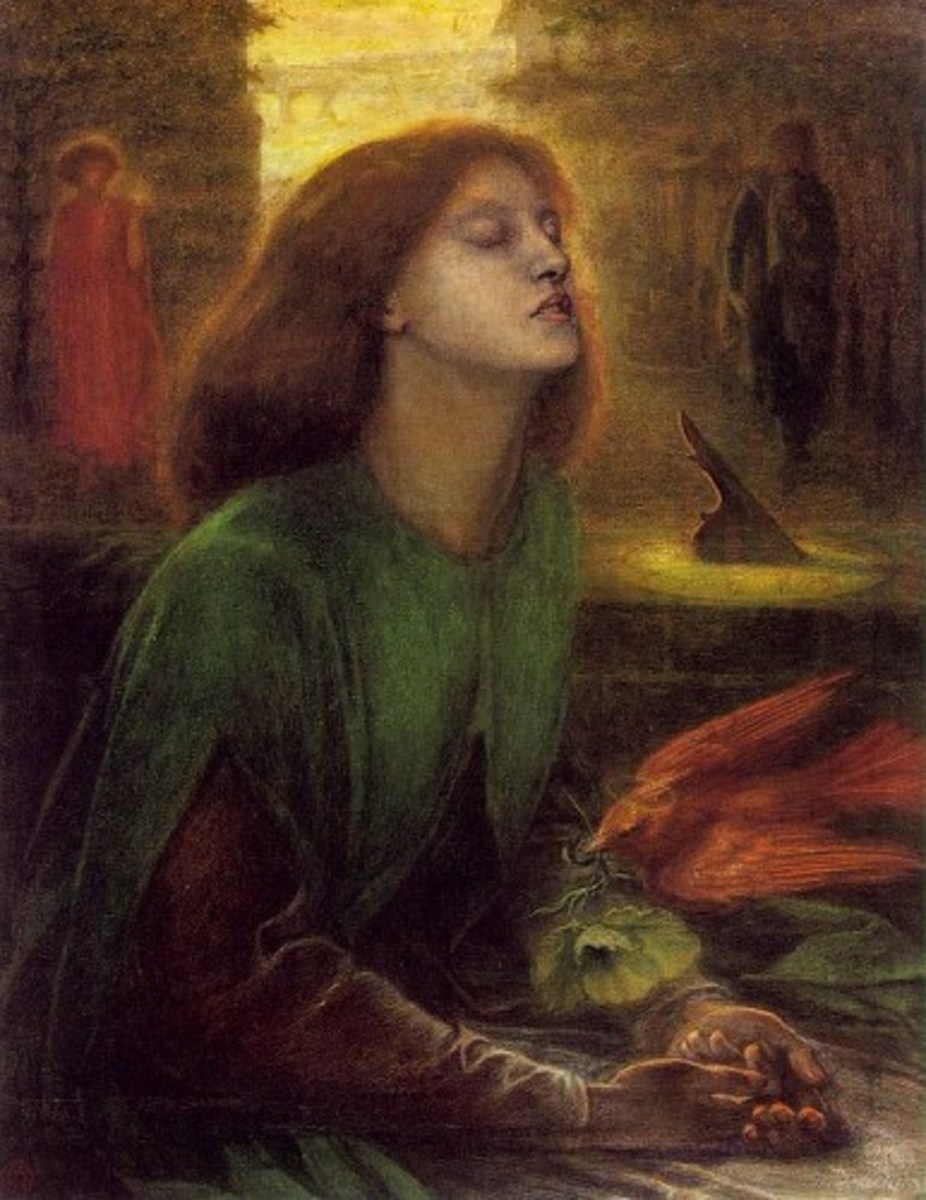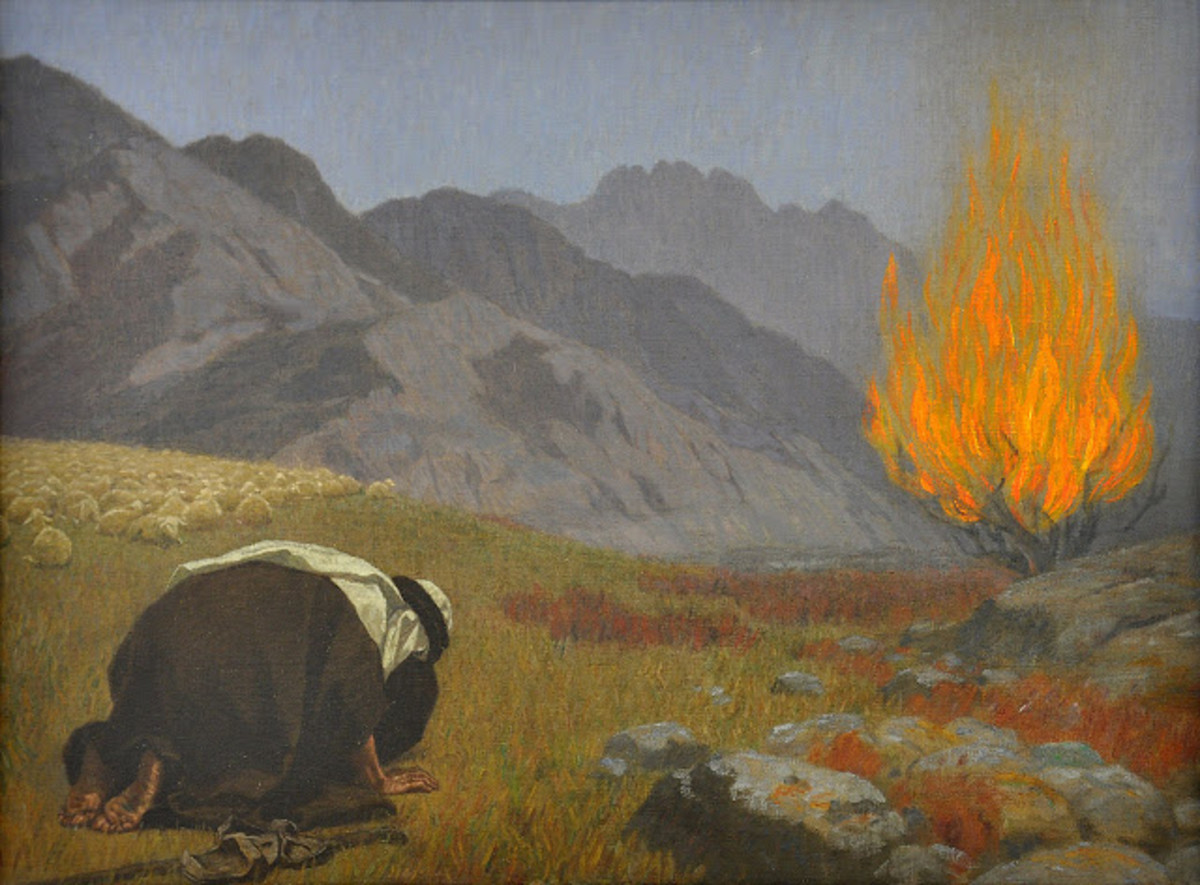Learning to Number Our Days: Psalm 90
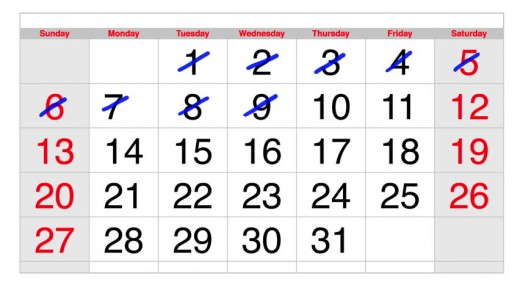
God: A Being We Can Count On
In London, there is an interesting ancient cemetery known as Bunhill Fields. In it rests the remains of Charles Wesley, the great English leader of the Methodist movement and writer of about 6,500 hymns. Also, there is Isaac Watts, minister and hymn writer, and Daniel Defoe, the author of Robinson Crusoe. The cemetery is sometimes referred to as the Westminster Abbey of Nonconformity because of the presence of these men.
Directly across from this famous cemetery is the chapel of John Wesley, Charles's famous brother. Also, there is the house in which John lived and died along with the monument that was reared to his memory.
Just before John Wesley's death on March 2, 1791, he opened his eyes and exclaimed in a loud, clear voice: "The best of all is, God is with us! Yes, best of all, and last of all is, God is with us!"
In Psalm 90 we have what is the oldest Psalm in the Bible. Written by Moses to a new generation of Israelites just before they are to enter the promised land, this Psalm celebrates the eternal presence of God despite the sinfulness and the transitoriness or impermanence of man on this earth.
God has been, is now, and always will be God. We, on the other hand, are here today and gone tomorrow. Life is fleeting. There are many changes that will happen in our short span of existence and we can't count on anything except the fact that through it all, God is there and He is with us! And through all of the changes and problems in life, He is in control of all that happens to us. Nothing can take place unless He allows it. And for the Christian, He is causing all things to work together for good (Romans 8:28).
This world will tempt us to rely upon many things, whether it be wealth, popularity, our position in life or the power that we've accumulated. None of these will last. Only the everlasting God will be there long after our memory fades from this earth. So we must live lives, not for that which doesn't last, but for the One who has created and sustains it all.
I. Background of Psalm 90
In Psalm 90 we see the wisdom of a man who has experienced the providence of Almighty God in his life and in the life of the people of Israel. Moses had seen the power of the Lord as He sovereignly took His nation out of the land of Egypt and in the process, destroyed Pharaoh's armies. He also witnessed how that same God sustained His people in the wilderness for 40 years, providing Manna for food, and a pillar of cloud by day, followed by a pillar of fire by night for protection.
However, Moses also sadly observed as a whole generation of his fellow Israelites died off in that wilderness because of their disobedience to their God. But now, the next generation of God's people is about to enter the land and lay hold of the promises that the Lord had made so many years earlier. Yahweh had remained faithful despite the faithlessness of the people with whom He had made the Covenant on Mount Sinai.
Moses is asking Yahweh to have mercy on his people and makes a plea with Him to enable them to live a significant life in the new land that He is about to give to them.
II. Praising the Eternal God (1-2)
Moses begins with praising the eternal God. He calls HIm our dwelling place in all generations. He is our sanctuary for protection, sustenance and stability. God told Moses at the burning bush that He was the great "I Am". And the term is used later in the Psalm. However, at the beginning of the Psalm the name given for God is simply the title of Adonai or Lord.
However, it is the same God from the burning bush. The great "I Am" is the Self-Existent, Eternal, Self-Sustaining One who needs nothing and supplies everything. No reality exists beyond Him and He is always consistently the same. Yahweh is an inexhaustible source of energy, so we can always count on Him to supply all of our needs.
It was He who sustained His people in the wilderness and it will be He who will be there for all the generations to follow. Indeed the Lord has always been there. Even before the nation of Israel or the entire world was brought into existence God was there and in control of all. Verse 2 tells us:
"Before the mountains were brought forth, or ever You had formed the earth and the world, even from everlasting to everlasting You are God."
God's nature is without beginning or end. He is beyond time and the Creator or Cause of all time. Nothing on this earth is permanent. Even the mountains had a beginning and will wear away over time. But the Lord Yahweh is the very definition of permanence.
II. Percieving the Fraility of Man (3-12)
In contrast to this all-powerful and permanent God is frail and impermanent man. However, even in our impermanence, God is in control over us. In verse 3 we see that the Lord turns man back into dust. It is He and He alone who has the power of life and death. He tells us how long we have on this earth.
When we think of a long period of time, most of us consider someone who has lived 100 years as old. And we think of a thousand years ago as ancient history. But to God, a thousand years are like yesterday. They are like a watch in the night. That is a four-hour time span. The timeless God doesn't have to worry about the same things we do. He created and is in control of time.
It is our enemy, however. It takes the fittest young bodies and brings them down to utter decay. And the timeless God watches this process over and over in every generation that passes. We suddenly get swept away like the waters of a flood which destroys everything in its path. We are like grass which can sprout in the morning, but by evening can fade away and whither.
Yet most people live totally oblivious to the brevity of life. They walk around as if asleep, not knowing how close they are to eternity.
Many are like the rich fool in Jesus' parable found in Luke 12:6-21. It's the story of a man who produced abundant crops and then, not having enough space to store his abundance, decided that he'd tear down his barns and build bigger ones. And rather than consulting God or thanking Him he instead consulted himself and took credit for his success. The man thought to himself:
"Then, I will tell my soul, 'Soul, you have many goods laid up for many years. Take your ease, eat, drink, be merry!"
What he didn't know was that he was about to die. Here is how the Lord completes the parable:
"But God said to Him: 'You foolish one! Tonight your soul is required of you. The things which you have prepared- whose will they be?' So is he who lays up treasure for himself, and is not rich toward God."
We have a similar situation in the book of James. In chapter 4 our Lord's half brother tells us this:
"Now listen, you who say, 'Today or tomorrow we will go to this city, spend a year there, carry on business and make money.' Why you do not even know what will happen tomorrow. What is life? You are a mist that appears for a little while and then vanishes. Instead, you ought to say: 'If it's the Lord's will, we will live and do this or that.' As it is, you boast in your arrogant schemes. All such boasting is evil. If anyone, then knows the good they ought to do and doesn't do it, it is sin for him." (4:13-17).
As Psalm 90 progresses, it tells us that God's wrath has consumed us and dismays us due to our sin. Indeed, our sins are quite clear to God. They aren't hidden from His sight. Sadly, man wasn't supposed to die. His body wasn't supposed to get old and deteriorate. It is because of our sins that this happens. Which leads us to our need for a Savior from sin. Later in the Bible we find that Savior to be our Lord Jesus Christ. But until we meet Him, our days will pass away in God's wrath.
In the King James Version, it says "we will spend our years like a tale that is told" (9). Another version reads: "We have finished our years like a sigh." The point is that after struggling through a life of afflictions and troubles, man ends his life with a moan of woe and weariness.
The Psalmist Moses says that man's days are but seventy or eighty years. Though Moses himself lived to be 120 years, men by this time in history usually lived much shorter lives. With modern medicine, we are getting longer lives but most still don't live past 100. And that is considered to be extremely old. However, in the light of eternity, this is like a second on a stopwatch. It is quickly gone. The Psalm tells us:
"Yet their pride is but labor and sorrow, for soon it is gone and we fly away." (10).
It is truly a wise person who understands the anger of God against sin and the fact that it is our sin that has limited our lives in the first place. Therefore, knowing this, we should learn to fear the Lord (11).
Then Moses asks the Lord to "teach us to number our days, that we may present to you a heart of wisdom." In other words, evaluate the time He has given us, realizing its brevity, and using each moment wisely to serve the Lord and not our own selfish desires. (12).
Scripture tells us that the fear of the Lord is the beginning of wisdom (Proverbs 9:10). By this is meant that we should have a continuous awareness that our Heavenly Father is watching and evaluating all that we say, do and think. Those who fear the Lord not only have a continuous awareness of Him, but also a deep reverence for Him and a sincere commitment to obey His commands. Numbering our days and applying our hearts to wisdom includes all of these things.
Pleading for God's Mercy and Divine Favor (13-17)
The final section of this Psalm is a plea for mercy and Divine favor by Moses, the man of God, for his people Israel. He asks God to return and be with this new generation of people, to be sorry for them and give to them his lovingkindness (or mercy). He asks that Yahweh makes them glad, that He makes their days of joy equal to their days of distress they've been through. And he requests that the Lord's favor or approval would be upon Israel.
Finally, he says:
"And confirm for us the work of our hands; Yes, confirm the work of our hands (17).
.The truth is that, if one has the grace and mercy of God in their life, then they can have a life of value and significance. Without Him, there is no true lasting significance. It is empty and vain. We all need to ask God to show us His purpose for our lives and then trust Him to confirm it and bring that life into existence. We are not here by accident. Rather we are here to bring glory to the God of the universe.
Conclusion
Someone once made an analogy that went like this:
"If you had a bank that credited you with $86,000 each day that would carry over no balance from day to day, allowed you to keep no cash in your account, and every evening canceled whatever part of the amount you failed to use during the day, what would you do? Would you draw out every cent and use it for your advantage.
Well, you do have such an account. It's called TIME. Every morning God credits you with 86,400 seconds. Every night you lose whatever you failed to use for good purposes. It doesn't carry over any balance and allows no overdrafts. Each day it opens a new account with you and if you fail to use the day's deposits the loss is yours. You cannot go back and you cannot draw against tomorrow."
In our lives, we waste so much of that precious commodity that has been given to us by our Creator. We spend it on things that, frankly, will not matter in 5 years, much less for eternity. According to the Westminster Shorter Catechism: "Man's chief end is to glorify God, and to enjoy Him forever."
We were created in God's image and designed for an intimate, unending relationship with the Lord of the universe and only in service to Him will we fulfill our reason for being here on this planet. It starts with the salvation which comes through faith in Jesus Christ as Savior and Lord. And it continues by using our talents and gifts for Him.
The true privilege of life is to know that the Everlasting God, the great "I Am", wants us frail and sinful creatures to have a relationship with Him, and true happiness in life is a by-product of that relationship. May all of us stop wasting time but begin to live in such a way that we number each of our days so that we can present to Him a heart of wisdom. And when we come to the end of our life, may the Lord truly confirm the work of our hands by allowing us to leave behind a legacy of love and grace that will affect generations to come for the glory of God.
© 2019 Jeff Shirley
